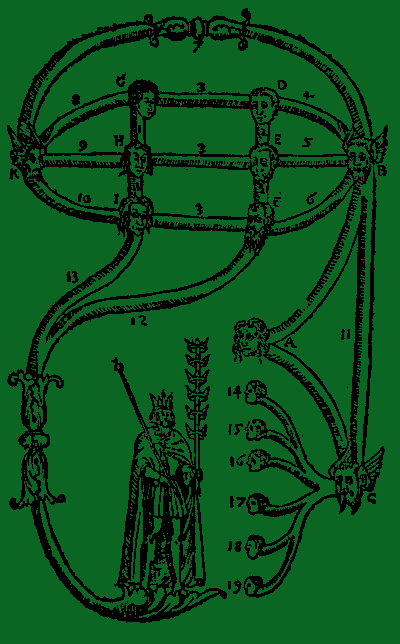
Christopher and the Red Snapper Ceviche
Claire Donato
for Christopher Rey Pérez
Christopher prepared red snapper ceviche using red snapper sold neither at Union Market nor Ideal Food Basket, but rather from the fishmonger down the street from his one-bedroom apartment—mid-century, rent stabilized, entry foyer, living room, and eat-in kitchen located on a block adjacent to a major commercial strip in Brooklyn, NY. At $11.38 per pound, the red snapper glistened on the ice atop which it was displayed. Is it fresh?, Christopher asked the fishmonger, wherein it referred to the red snapper, in contrast to the player designated to catch others in a game—tag, you’re it.
I can attest to the red snapper’s freshness, the fishmonger replied. Christopher puckered in deep consideration. Pink like a pair of ballet slippers, the red snapper evoked a newborn baby’s nursery, or a sophisticated lace bra within whose two bright eyes dark circles sat like nipples. In a peculiar slippage of time, Christopher could have sworn the fish’s circles looked at him and winked.
At home, Christopher watched a YouTube video called “How to make fresh ceviche hack! #food #howto #lunch #grandma.” In it, an elderly woman asked Christopher: “Have you ever wanted to make fresh ceviche but were too busy on the day of? Get yourself a sharp little knife.”
The grandma cut a filet of red snapper into small cubes and tossed it in a bowl with lime juice, lemon juice, jalapeño, red bell peppers, red onion, garlic, cumin, crushed red pepper and salt. In front of his laptop, Christopher placed his own cutting board, against which he pinned the red snapper down with his left thumb and forefinger. Holding a sharp little knife in his right hand, Christopher began to emulate the elderly woman’s motions, pausing only for a moment to deliberate about whether or not to cut his red snapper—his newborn ballet slippers, his nipples—into smaller bites.
Six months prior, Christopher had eaten ceviche—halibut, not red snapper—that was cut into miniature pieces. That ceviche resembled jewelry, and each time Christopher recalled eating it, he pictured himself chewing and swallowing a necklace’s beads. Behind this food memory lay the memory of a friendship bracelet he received from a pen-pal with whom he corresponded as a sixth grade student in the Lower Rio Grande Valley of Texas. Christopher’s pen pal, Claire, had dull brown hair and plain hazel eyes (her description) and lived in Clarion, Pennsylvania, adjacent to the Clarion River, a 110-mile tributary of the Allegheny. She was 12 years old and in the seventh grade, and her parents had recently separated. In her seventh letter to Christopher, she sent him the aforementioned bracelet, a gift for his 11th birthday. Claire’s letter was dated either September 7th or September 9th, 1998, and its salutation read: Happy 11th Birthday, Christ Bear! Claire had taken to calling Christopher by this nickname, which reflected the etymological meaning of his name—bearer of Christ—while simultaneously playing at her own creaturely nickname, Claire Bear.
Claire’s Happy Birthday Wish to Christopher was a Proper Noun, and the bracelet enclosed in the envelope was secured by elastic. Its square wooden beads spelled out his nickname in black and white letters: CHRIST BEAR. Next to these beads was a charm, a wooden cross.
Revisiting this memory, Christopher felt a pang of melancholy, not merely because he had failed to keep the bracelet with wooden beads the size of ceviche cubes and a wooden cross—though perhaps his family did, and on his next trip to the Lower Rio Grande Valley of Texas, he could explore the boxes in their basement and try to excavate it. Truthfully, he desired for there to be a more dramatic memory surrounding the bracelet: a memory of it lonesomely floating down the Rio Grande, perhaps, or a memory of burying it in a fit of anger inspired by a low exam score, a missing dog, a stolen troll doll, or a pen-pal’s premature abandonment. But no, Christopher had grown out of his creaturely nickname, as had Claire, although they never talked about it. They lost touch, as so many middle school pen pals do. Still, Christopher recognized his yearning for a different chain of memories to be associated with the bracelet to be a bracelet in and of itself: one he could wrap around his mind, which is a wrist insofar as it is the joint connecting the hand to the page where memories are recorded.
That night, Christopher shared his red snapper ceviche, which he cut into ½ inch cubes, 0.11 inches smaller than the wooden beads that comprised his childhood bracelet, with his partner Rae. Between bites, he told Rae about how he felt like the red snapper had winked at him at the fishmonger’s shop, and then recalled his childhood pen-pal Claire, ultimately revealing his childhood nickname, Christ Bear. Rae did not adopt this nickname in kind, but laughed in bewilderment and said “You are not Christ, or a bear. You are a fish.” Then Christopher and Rae searched for Claire but could not find her on the Internet, because Christopher could not remember Claire’s full name.
Claire Donato is most recently the author of Kind Mirrors Ugly Ghosts (Archway Editions, 2023), a fiction collection, and Woebegone (Theaphora, 2025), a poetry book published alongside an accompanying adventure-puzzle video game, Woebegone's Song. Claire lives in Brooklyn, works at Pratt Institute, and is a candidate in psychoanalysis at the Contemporary Freudian Society.